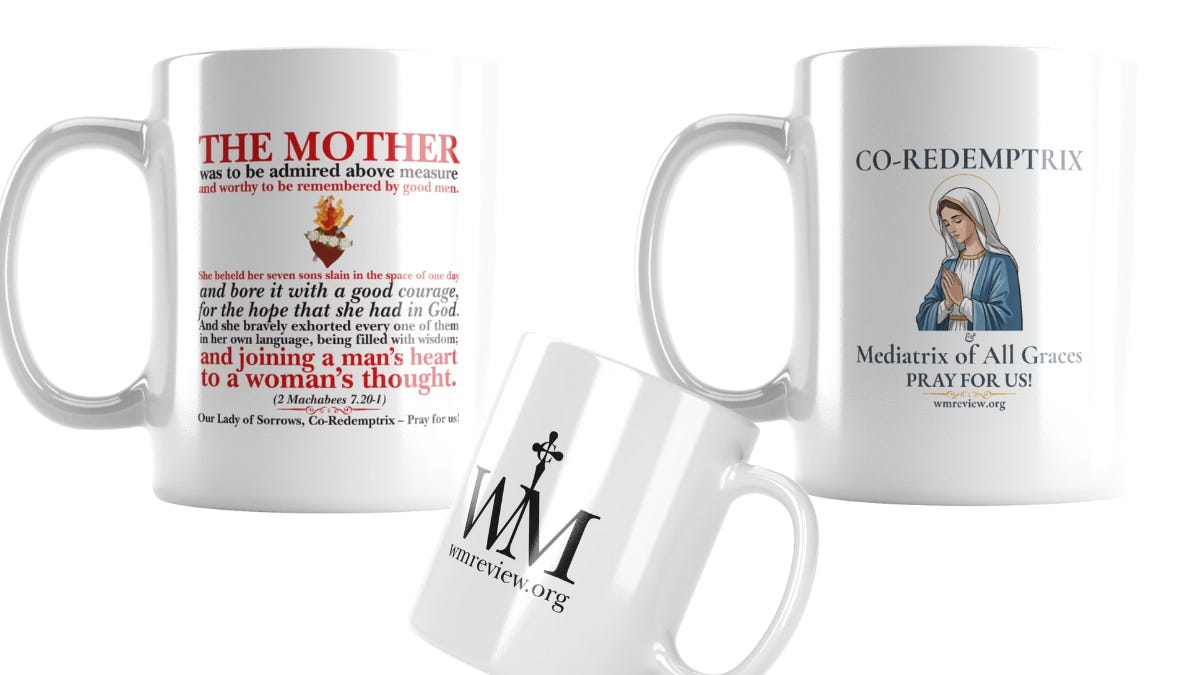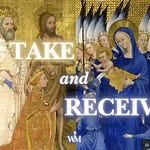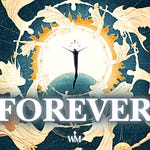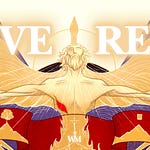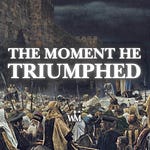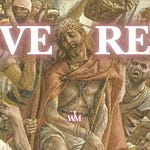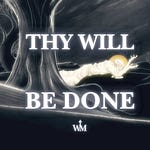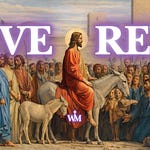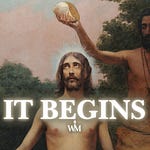
The spirit of the world is rooted in the wrong use of what God has made – even though he has made it all for us. (Day 2 of Total Consecration)
Editor’s Notes
The first period of the preparation for St Louis de Montfort’s Total Consecration to the Blessed Virgin is focused on gaining a greater awareness of the spirit of the world, and emptying ourselves of it.
We are starting with the truth about creation, which this worldliness seeks to obscure. We cannot understand how this spirit of the world is wrong, unless we first know what is right.
The themes, as well as vocal prayers and readings associated with this ‘Week 0’, can be found here. You can find the book here.
Although this is part of the Total Consecration preparation, it also stands alone as a great text in its own right.
CONTENTS:
READING: The text consists of the second half of Fr Aloysius Ambruzzi’s commentary on The Principle and Foundation of St Ignatius’s Spiritual Exercises.
MEDITATION: Fr Ambruzzi’s text is intended to provide material for the meditation, which appears in point-form following it. A guide on how to use these points in meditation can be found here.
Reading for Day 2
The Principle and Foundation (Part 2)
Man is created to praise, reverence, and serve God our Lord, and by this means to save his soul.
The other things on the face of the earth are created for man to help him in attaining the end for which he is created.
Hence, man is to make use of them in as far as they help him in the attainment of his end, and he must rid himself of them in as far as they prove a hindrance to him.
Therefore, we must make ourselves indifferent to all created things, as far as we are allowed free choice and are not under any prohibition. Consequently, as far as we are concerned, we should not prefer health to sickness, riches to poverty, honour to dishonour, a long life to a short life. The same holds for all other things.
Our one desire and choice should be what is more conducive to the end for which we are created.
Self-Control, or the End of Creatures
A Companion to the Spiritual Exercises of Saint Ignatius
Fr Aloysius Ambruzzi SJ
The first Prelude is to see God the Creator showing me the whole universe and saying: Behold I have given thee all.
The second Prelude is to ask for light that I may know the origin of created things and the object for which God gives them to me, and for grace that I may use them according to His Holy Will, for His love and glory.
1. End of creatures
“Our time is as the passing of a shadow... Come, therefore, and let us enjoy the good things that are present, and let us speedily use the creatures as in youth... And let not the flower of the time pass by us. Let us crown ourselves with roses before they be withered: let no meadow escape our riot. Let none of us go without his part in luxury: let us everywhere leave tokens of joy: for this is our portion, this is our lot.” (Wisd. Ii, 5-9_
Such was in pagan times the cry of the worldly and material man for whom “the death of man and of beasts is one, and the condition of them both is equal.” (Eccl. Ii, 19).
And yet he could not deny his nature. The gross pleasures of the beast could not fill the void of his heart, nor could the other joys and satisfactions which life and the world afford him. In the midst of things unstable and changeable, he longed for something firm and constant. In the midst of agitation and never-ceasing anxiety, he hungered for calm and peace. In the midst of cruel and inevitable pain, he felt he was made for happiness. And in the midst of a world which is but a vast cemetery, he had intimations of eternity.
Reason might have enlightened man concerning his high destiny and the proper use of the things which God had placed at his disposal. But reason had been debased and obscured. At any rate it could never provide that brilliant and steady light which alone would enlighten man’s path through the labyrinthine ways of the world, dispel all darkness, and eclipse all false lights. God Himself came to man’s help and revealed to him his true value and his real end, and the value and use of created beings.
We have no abiding place here: We are pilgrims going home. Created things, however beautiful and attractive, are not our end: they cannot satisfy the boundless longings of our hearts. They are but faint likeness of God’s infinite beauty, steps of the ladder which unites earth with heaven, and by which we climb to God’s throne.
They are our servants. “And the other things on the face of the earth are created for man’s sake, in order to aid him in the prosecution of the end for which he is created.” They are given to us that we may direct them and ourselves to the common Creator and Lord. We are the mind of those that cannot reason, the eye of those that cannot see, and the heart of those that cannot worship and love. We are the priests of creation, set apart to offer to God the prayer and the incense of the creatures below us. The whole earth is a temple and our heart is an inner shrine. We are the conductors of the universal choir singing the glory of the Creator.
2. Right use of creatures
All created things are, first, means to know God, the Creator and Primal Cause, and His infinite perfections.
“For since the creation of the world His invisible attributes—His everlasting power and divinity—are to be discerned and contemplated through His work.” (Rom. i, 20)
Nature, i.e., the ever-recurring spectacle of natural phenomena, and still more, the course of events in the Church, in human society, and in each individual soul, is the book written by the wisdom and the love of God. Each page, each line, bears His imprint.
Every created thing is a means to love God more and more. The whole meaning of life is the desire of God to take possession of man whom He has left free. As mothers invite their children to their arms with sweets and playthings, so does God attract us to Himself through His creatures, as through so many gifts of His loving heart. “I will draw them with the cords of Adam, with the bands of love.” (Osee xi, 4) They are the rays along which we get to the Sun of justice, the river that takes us back to the Spring of life.
To love them is not sinful. It is sinful to love them independently of God, to stop at them instead of rising from their love to the love of God. It is only the few and the strong that can renounce the tenderness of secondary loves and fly straight to the very source of love. Most of us can only go on foot, pausing to pick the flowers and taste the fruits on the way, taking care that all should lead us to the Eternal Love. “I see well, my dear daughter,” wrote St Francis of Sales to one of his penitents, “that you will never go to God quite straight; you will only get to Him by passing through creatures.”
As for the leaves, that in the garden bloom
My love for them is great, as is the good
Dealt by the Eternal Hand that tends them all.(Dante, Paradise, xxvi, 64-66)
The good things of this world are given us also to develop our activities as individuals, as members of a family, and as members of society. We must, then, take proper care of our body and of its senses, of our soul and its faculties; and see that they reach the perfection which God requires of us. We must work for the spiritual and the material welfare of the family or of the institution to which we belong. We must not forget that we are members of a divinely instituted society, the Church, and of a large human society, the State, and that it is our duty to work for the good of both according to the means which God has placed at our disposal.
Lastly, some creatures are meant, in God’s loving providence to afford us matter for the exercise of self-denial and the practice of patience. They are the pleasures and the satisfactions that God forbids to all or to some of us, and the sufferings which are inevitable to our state of life, or which God sends us.
3. Wrong use of creatures
To use the good things of this world merely for the pleasure they afford, to embrace them against God’s Will, and to shrink from what is hard and painful when duty commands otherwise, is disorder and sin. Sin is nothing else but the wrong use of something good in itself. It is to do violence to creation—to make it, in the words of St Paul, subject to vanity, to force it into the servitude of corruption, and make it groan and travail in pain. It is to make created things the instruments of our corruption and debasement. We belong to our belongings and become like the things which we love.
4. Ignatian indifference
The danger of being carried away by the love of created goods, forgetful of God, and of pursuing illusory and fleeting creatures instead of the Eternal is, alas, only too great for such weak and blind creatures as we are. St Ignatius, therefore, wants that we should always be masters of ourselves in all things, never allowing ourselves to be led in our choice by whims and caprices. Duty, i.e., the Will of God made known to us in His Law, through our lawful superiors, and through the circumstances of our life, must be our only guide, whenever we choose anything or reject it.
“It is, therefore, necessary, that we should make ourselves indifferent to all created things, in so far as it is left to the liberty of our free will to do so and it is not forbidden.”
St Ignatius singles out four classes of creatures against which we should constantly be on our guard, not to be drawn through motives of either love or fear, to act against the voice of duty.
“In such sort that we do not for our part wish for health rather than sickness, for wealth rather than poverty, for honour rather than dishonour, for a long life rather than a short one.”
The Saint displays here a deep psychological insight. Every deviation from the path of duty is the result of our inordinate longing for honour and high places, for the good things of this world, for comforts and luxuries, for a long and happy life. Every neglect of duty is an act of cowardice. We shrink from humiliations. We hate the very idea of financial loss and consequent poverty. We dislike hardship and pain, and we dread death. Hence the need of arming ourselves against the inordinate inclinations of our nature and the weakness of the flesh. A man that fears not poverty, nor the obloquy and the neglect of men, nor pain nor even death is a free man—indeed the only free man. All the others are more or less slaves and cowards.
5. God above all
“Desiring and choosing only those things which most lead us to the end for which we are created.”
God’s Holy Will must be the supreme rule that guides us both when we choose and when we reject anything—when we say YES and when we say NO. We must constantly choose what, in the circumstances, will help us most to know God, to love Him, to develop our activities, and to offer to our Creator a worthy sacrifice. As far as we can, we must avoid whatever hinders our soul from attaining these ends. For this we have but to throw on every creature the light of God—His Holy Will. It will light up our path
Amid the blaze of sophistry and doubt
If we place God in the innermost depths of our heart and make Him the principle and the aim of all our activity, everything will speak to us of Him and take us to Him.
We often distinguish between secular and religious things, forgetting that there is but one secular and godless thing, and that is sin. Sin—mortal sin—is essentially disorder; it is a break in the universal harmony. Man belongs to God, to mankind, to himself. Whenever he places himself in opposition to God, to mankind, or to himself, he is off the right track, a planet out of its orbit: he sins. Man is essentially and wholly for God. God alone perfects him. God alone is the proper object of his aspirations, his last end and his eternal resting place. By seeking only his pleasure in created things, in opposition to God’s Holy Will, man makes himself unfit for the Eternal Beauty and the Eternal Good, and the creatures which should have been his ladder of ascent to God, become his ladder of descent into the abyss.
God in all and above all
(Suggestions for the colloquy)
1. O my God, grant me to know that every created thing comes out of Thy loving hands—that every event or circumstance of my life, whether pleasing or not, has been planned by Thy infinite love—as a means whereby I may love and serve Thee better, and be drawn nearer to Thy Divine Heart.
2. Grant, O God, that I may enthrone Thee in the very centre of my heart and make Thy Holy Will the supreme guiding rule of all my actions—never choosing what pleases me, if Thy Law forbids it—nor shrinking from what is hard, if duty commands it.
3. O my God, I know that it is my instinctive love of the pleasing things of this world—my fear and horror of what is hard and humiliating—that makes me often unfaithful to Thee and to duty, or that, at least, prevents me from following the way of perfect service.
4. O my God and my Saviour, I know that I cannot be truly indifferent to the things of this world. That is why I beg Thee to give me a high esteem, love, and desire of those things which Thou hast loved and chosen—and a heavenly dislike for what Thou didst dislike and avoid. I shall thereby be able to make a proper use of the things of this world—accepting or refusing them as Thou willest—desiring and choosing only that which most leads me to the end for which I have been created, Thy glory and my eternal salvation.
Meditation for Day 2
It is in mental prayer that that much of the preparation will be achieved – and meditation is a means of entering mental prayer. See our guide to meditation for two ways to use the below texts.
The Preparation
Put away distractions and place yourself in the presence of God. (“Most holy and adorable Trinity, etc.”) Bring also the Blessed Virgin to mind, place yourself before her and ask for her assistance.
Humble yourself before God, recalling what we are in relation to God.
Say a preparatory prayer (“O my God and Sovereign Lord, etc.”)
Consider the First Prelude – call to mind the scene, theme, subject or tone of the meditation. Do not get hung up on imagining scenes if this is difficult for you.
“To see in imagination my soul as a prisoner in this corruptible body, and to consider my whole composite being as an exile here on earth, cast out to live among brute beasts.”
Consider the Second Prelude – Consider what you want from this meditation (e.g., faith, contrition, charity, temperance, knowledge of God, etc.), and ask for it.
“The second Prelude is to ask for light that I may truly know my origin, the object of my life here and my eternal end hereafter, and for grace that I may direct all my thoughts, words, and actions to this end.” (Fr Ambruzzi)
The Points for Meditation
First Point: “The other things on the face of the earth are created for man to help him in attaining the end for which he is created.” This is the reason all things in the world exist: to assist man in praising, reverencing and serving God, and by this means save his soul.
Second Point: “Man is to make use of them in as far as they help him in the attainment of his end, and he must rid himself of them in as far as they prove a hindrance to him.”
Third Point: “We must make ourselves indifferent to all created things, as far as we are allowed free choice and are not under any prohibition…. We should not prefer health to sickness, riches to poverty, honour to dishonour, a long life to a short life. The same holds for all other things.”
One could consider these points in reference to oneself: How far have we been conscious of these truths in our daily lives so far, what practical conclusions should we draw from these truths, how far have we lived up to them so far, what must we do to live up to them in the future, etc.
One could consider the acts of virtue we can make in response to these truths – Acts of faith, humility, hope/confidence, thanksgiving, contrition and love – talking all the while to God, the Blessed Virgin, our Guardian Angels, etc.
Consider whether any practical resolutions can be drawn from these reflections, and ask God to help with them.
The Colloquy
The points of the meditation are intended to lead us to the colloquy, by which he means speaking to Our Lord, the other persons of the Holy Trinity, Our Lady, or any other of the saints.
Fr Ambruzzi offers some suggestions for colloquies (see above), but it is important to speak frankly to God in our own words, rather than simply reading somebody else’s.
If one feels moved to speak to God before meditating on all the points, one should certainly do so. The same applies if one feels moved to simply rest in God, rather than engaging in discursive meditation. These impulses should be followed over any particular method of meditation.
The End
End the meditation with a vocal prayer – such as the Our Father, the Anima Christi. Prayers from the Byzantine Paraclisis may be fitting for this 33-day preparation – for example:
Glory be to the Father and to the Son and to the Holy Ghost.
O Virgin, I beseech thee who hast given birth to God the Saviour, do thou deliver me from my afflictions. It is to thee that I now come for shelter, to thee that I lift my heart and my thoughts.
Now and always and for ever and ever. Amen.
O thou who alone art the Mother of God, thou who art good and the Mother of Goodness, do thou take away the disease of my body and soul: do thou make me worthy of thy good care, and of the coming of God.1
Reflect on how well we have prayed, and how well we have followed our chosen method.
Select a spiritual nosegay from your meditation to keep with you for the rest of the day.
See you tomorrow. Hit subscribe to make sure you don’t miss it or any of our other material:
For more on the St Louis de Montfort’s True Devotion and Total Consecration, for which we are preparing, see here:
The theological basis of ‘True Devotion’ and the Consecration to Mary (Garrigou-Lagrange)
The fruits of ‘True Devotion’ and Consecration to Mary (Garrigou-Lagrange)
For more on the importance of not getting bogged down with methods, and on allowing God to act, see here:
For more on Week 0, and the vocal prayers that are are suggested for each day, see here:
‘Week 0’ of St Louis de Montfort’s Total Consecration preparation (Prayers, practices and reading)
Get the book here:
True Devotion to the Blessed Virgin Mary (St Louis de Montfort)
HELP KEEP THE WM REVIEW ONLINE WITH WM+!
As we expand The WM Review we would like to keep providing free articles for everyone.
Our work takes a lot of time and effort to produce. If you have benefitted from it please do consider supporting us financially.
A subscription gets you access to our exclusive WM+ material, and helps ensure that we can keep writing and sharing free material for all.
You can see what readers are saying over at our Testimonials page.
(We make our WM+ material freely available to clergy, priests and seminarians upon request. Please subscribe and reply to the email if this applies to you.)
Subscribe to WM+ now to make sure you always receive our material. Thank you!
For a daily reminder of why God made you, from the good old Penny Catechism…
… and if you are enjoying this preparation for Total Consecration, why not get it in mug form?
Follow on Twitter, YouTube and Telegram:
Twitter (The WM Review)
These prayers are drawn from the ‘Office of Consolation’ or the Small Paraklesis (Παράκλησις, “supplication” or “comfort”), a service of intercession addressed to the Theotokos, and written by Theophanes/Theosterictus the Monk in the 9th century. The texts have been lightly adapted from the Melkite Byzantine Daily Worship.
The Paraklesis is chanted in times of distress and sorrow of soul, and daily during the first fourteen days of August in preparation for the feast of the Assumption. It is among the most beloved devotions of the Byzantine tradition.
We are offering a selection of these prayers to be used as readers see fit – at the start or end of meditation, for morning or evening prayer, or at any other time.



